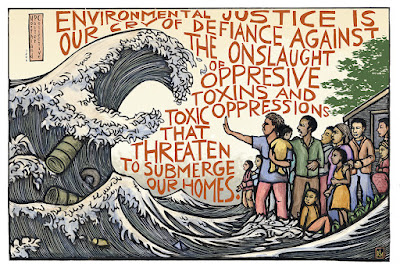Hey Gavin Newsome, Would You Like Some Toilet Paper To Go With Your Cow Poop? California Weighs Ending Climate Credits For Cow Poop!
The state program “creates significant environmental and impacts…The pollution of groundwater, odors, air quality, massive ammonia emissions and flies.” PHOEBE SEATON, LEADERSHIP COUNSEL FOR JUSTICE AND ACCOUNTABILITY
IN SUMMARY
California grants climate credits for fuel made from cow manure, but there’s a paradox: The state’s program encourages collection of methane yet promotes natural gas.
As California seeks to lead the nation on battling climate change, perhaps no debate is more fraught than the one over climate credits for cow poop.
More than a decade ago, California helped spark a boom in biofuels — produced from plants or animal waste — with its first-of-its-kind Low Carbon Fuel Standard. The program forces carbon-intensive fuel companies to pay for cleaner burning transportation fuels.
But as the state eyes an electric future, winding down support for some of the fuels the standard helped proliferate is proving highly contentious. The case of biofuel made from dairy farm manure is perhaps Exhibit A of those tensions.
The California Air Resources Board is planning to overhaul its fuel standard, including consideration of a 2040 phaseout of credits that put a premium on using methane emitted by cows to produce natural gas. About half of the state’s methane emissions come from dairy and livestock, so collecting the gases wafting off of manure keeps them out of the atmosphere and offers a renewable source of fuel.
But the paradox is that dairy biogas is used to produce a combustion fuel — which the state is on a path to phase out, especially for cars and trucks.
The air board is considering a phaseout of the dairy credits because they encourage natural gas production, which emits greenhouse gases.
The manure debate has major implications for California’s role as a climate leader. During New York Climate Week last month, Gov. Gavin Newsom launched an international climate initiative aimed at reducing global methane emissions. Under a state law, California must cut its methane emissions 40% from 2013 levels by 2030.
The reason for the urgency: Methane is a potent greenhouse gas that’s responsible for up to 30% of the world’s global warming that is driving climate change. Unlike other greenhouse gases, methane breaks down in about a decade, meaning curbing it could quickly reduce some of climate change’s impacts.
California is America’s dairy capital, with more than 1.7 million cows producing about $10 billion worth of milk last year — but these cows and other livestock in California also produced the climate-altering equivalent of almost 23 million tons of carbon dioxide in 2020. Most of that is methane emitted by cow manure and from their farts and belches.
California’s strategy for cutting its methane footprint has so far hinged on providing incentives, mostly to the dairy industry.
In doing so, the state has spawned a complicated, niche industry dedicated to capturing dairy methane and selling it as a renewable fuel.
California does this through grants for construction of digesters — recovery systems that trap the methane from manure — and valuable climate credits from its Low Carbon Fuel Standard program.
The biofuel produced by collecting methane from dairy and swine manure is used to produce natural gas that powers heavy-duty trucks and other fleets — the equivalent of 21 million gallons of diesel fuel in the first three months of the year, according to air board data.
Producers of dairy biogas say phasing out the special credits for capturing methane would upend what has been a success story, devastating the industry and halting the state’s progress on methane reductions.
If they do that, then that essentially takes away most of the value — in terms of this gas being low-carbon — and really undermines the whole reason we do this,” said Daryl Mass, chief executive of
But environmental groups and others are pushing for a more aggressive phaseout. They say the credits support industrial dairy farms that pollute rural, low-income communities in the Central Valley.
“The state has decided — instead of regulating methane emissions — to incentivize and provide preferences for the production of methane in a manner that also creates significant environmental and environmental justice impacts,” said Phoebe Seaton, executive director of the Leadership Counsel for Justice and Accountability, a Fresno-based environmental advocacy group. “One is the pollution of groundwater, (and) odors, air quality, massive ammonia emissions and flies.”
Phasing out credits for dairy gases
Born out of the state’s 2006 climate law, the goal of the air board’s Low Carbon Fuel Standard is reducing the climate impact of transportation fuels by 20% between 2013 and 2030. Companies that produce more carbon intensive fuels must buy credits to offset their emissions, while lower-scoring fuels produce credits that can be sold. The fuels are graded using a “life cycle” evaluation that judges not just how clean those fuels burn, but also the carbon dioxide emitted during their production and distribution.
Read More AT https://calmatters.org/environment/2023/10/climate-change-cows-credits/























Comments
Post a Comment